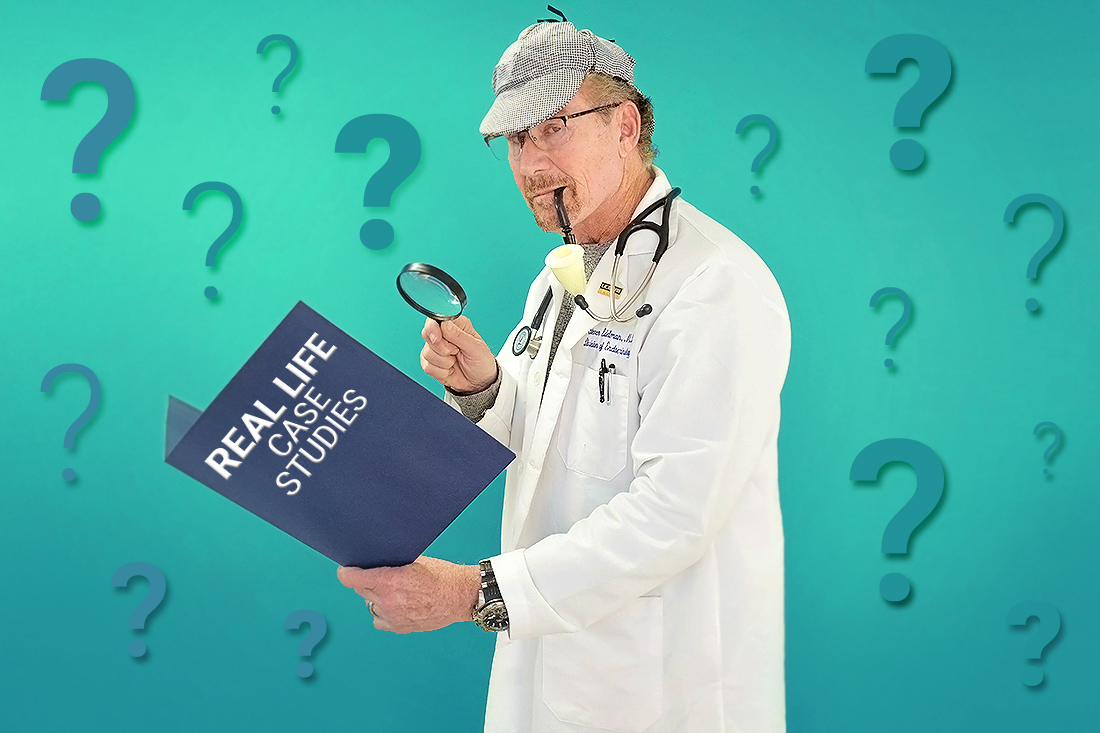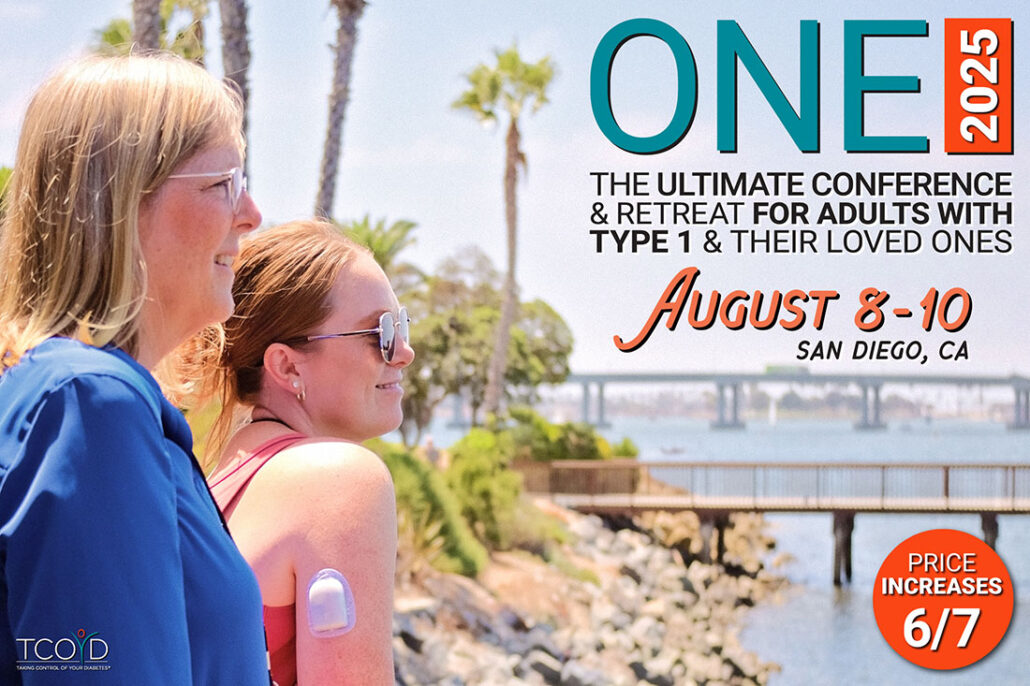
Hello folks,
Last month we shared a case study on my patient Kyle, who was exhibiting signs of both type 1 and type 2 diabetes. You can read more about the background of Kyle’s case here.
It was not clear from his lab tests whether he has type 1 or type 2, so I decided to run more tests to see if we could get definitive results.
I ordered four of the standard autoantibody tests that are used to determine if someone is at risk for type 1 diabetes:
- Glutamic acid decarboxylase (GADAs)
- Insulinoma-associated-2 autoantibodies (IA-2A)
- Insulin autoantibodies (IAAs)
- Zinc transporter 8 autoantibodies (ZnT8A)
Initially Kyle’s GAD autoantibody test came back negative and his zinc transporter autoantibody test was positive. I ordered a repeat of these tests, plus the IA-2A and insulin autoantibody tests.
Unfortunately we have not gotten all the data back at this time. Sometimes these specialized labs take a while to come back with results. The results of the zinc transporter that we repeated and the IA-2A that we ran for the first time will make a big difference in how we decide what type of diabetes Kyle has.
I just returned from the American Diabetes Association’s Scientific Sessions (the largest diabetes conferences in the world) and I was updated on all the information regarding screening for type 1 diabetes. If Kyle has one positive autoantibody – but even more importantly two – his chances of getting type 1 diabetes in the next five years goes up to 75%, and in the next 10 years, 100%.
If all the autoantibodies that were repeated come back negative, then we are going to assume that Kyle has type 2 diabetes. If I had never seen any prior positive autoantibodies, I would have easily assumed he had type 2 diabetes because he was heavy, he has a family history of type 2 diabetes, and he is responding incredibly well to nutrition and lifestyle modifications.
Here is his most recent 14-day CGM download:

It looks beautiful.
Kyle has really taken the bull by the horns and has been doing more regular exercise and he has also been working on his diet in terms of reducing high-caloric foods and paying more attention to what he eats.
He does have spikes here and there when he eats things with a lot of carbohydrates, but as you can see, his results are nothing short of incredible.
If Kyle does end up having positive autoantibodies, I would expect that over time his beta cells will be progressively destroyed, and they will be unable to secrete enough insulin to keep his blood sugars normal. This typically occurs over months, but not years.
If two of his autoantibodies come back positive, then he will be a candidate for a new medication called Tzield, which is approved by the FDA for people who have what we call stage 2 type 1 diabetes.
People in stage 2 type 1 have two or more positive autoantibodies, no symptoms, and what we call dysglycemia, which means blood sugars are elevated but not totally high. It’s very similar to the levels we use to define prediabetes, which is a fasting blood sugar between 100-125 mg/dL and an A1c range between 5.7 to 6.4.
A glucose tolerance test is required protocol to get Tzield. If Kyle shows that his blood sugars are not perfectly normal after 75g of glucose and he shoots up above 200 mg/dL at any time during the two-hour test, then he’d be a candidate for Tzield. At that time we’d educate him on the pros and the cons of being treated with this medication. There’s no question that this treatment is safe and effective, and I’d give it to my children if they tested positive in this range. Delaying type 1 for two to three years is priceless, especially in this era of T1D advancements.
If Kyle only comes back with one positive autoantibody, I would keep him on a diet and lifestyle modification regimen right now because his blood sugars are good. I may also repeat the autoantibody tests one more time because it’s been shown that not all labs are great at measuring insulin autoantibodies.
If he still only has the one positive autoantibody, I would check in with him every six months and follow his CGM data so we’d be the first to know if his beta cells start to decline. (If he didn’t have a CGM, we’d do a glucose tolerance test every six months to see if there are any changes). If someone has one autoantibody, it means they have a higher risk of developing type 1 in their lifetime than someone with no autoantibodies, and another blood test in a year is recommended.
This is a real-life active case study in progress, and we’ll update you next month to give you the results of Kyle’s tests.
Click below for part 1 of Kyle’s case:


This person almost sounds like me. What about a C-Peptide test. I was initially diagnosed type II but progressed to type I when I had a DKA incident with a BG of 1486 and was told by my doctor at the time this may have been prevented if they had done more advanced testing but I don’t know if those were available 27 years ago.
Measuring C-peptide can be very misleading, and not really help with a diagnosis. A very high C-peptide would probably be leaning more toward type 2 and a low to type 1, however, people with LADA may have plenty of insulin around at certain times which can make a diagnosis confusing. Your doctor should have ordered islet autoantibodies, such as GAD, but I don’t know if they were readily available 27 years ago. Glad you survived that episode of DKA.
I was diagnosed with type 2 about 8 months ago, based on A1C and c-peptide results, plus family history of T2. I was advised to start metformin as well as changing diet and exercise. After initial positive results of changing diet and exercise drastically, I reduced my A1C from 8.8 to 5.9 within 3 months. However, more recently my same diet and exercise hasn’t resulted in the same improvements and my blood sugar control has progressively been getting worse. I just had a GAD test done has came back positive, so my endo has changed my diagnosis to LADA. She mentioned not being a candidate for Tzield due to taking metformin. She said even 1 pill disqualifies me. I’m not seeing anything related to this and I believe I’m still in stage 2 based on criteria. Not currently needing any insulin. Is this true? I see other recommended autoantibody testing I am going to request as well. Appreciate any insight on still potentially being a candidate for Tzield. Thanks!
Hi Karen,
You very well may be in stage 2, however, you did have bonafide elevated blood sugars. Saying that, I think you may be a very good candidate for Tzield to prolong the ability of your pancreas to secrete insulin. Remember that using Tzield after it’s approved is up to the patient and they physician. I would get all four autoantibodies measured, and if you have two positive, you should seek out treatment as soon as possible. Your endocrinologist does not sound well informed.